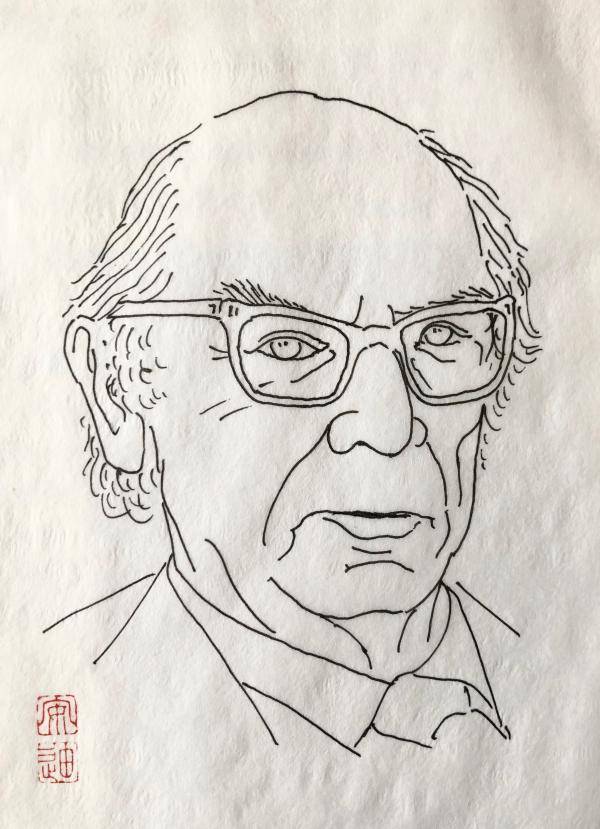
Portrait of Berlin (painted by Andy)
One
The British writer and bibliophile J. Rogers Rees published a book “The Pleasures of a Bookworm” in 1886, including a section called “The Romance and Reality of Dedication” (The Romance). and Reality of Dedications), at the beginning:
In “dedication” (dedication), what kind of romantic affair can we find and what we want to cover? It is often a sign of love, or a statement of friendship—no, it occasionally carries sadness and bitterness. Old Disraeli (D’Israeli the elder) often confessed that he always picked up the fun from the preface, and I also have to confess that I often read the author’s words carefully and spy on their souls to gain more It’s fun instead of paying attention to their “works” as the writers hope.(Translated by Chen Lin, Chemical Industry Press, Beijing First Edition, May 2020, 88 pages, the quoted translation is slightly modified from the original text)
I asked young friends to search for the first edition of Turgenev’s novel “First Love” in English by Isaiah Berlin (Isaiah Berlin) on the Internet of used books, just for the dedication of Berlin before the book.
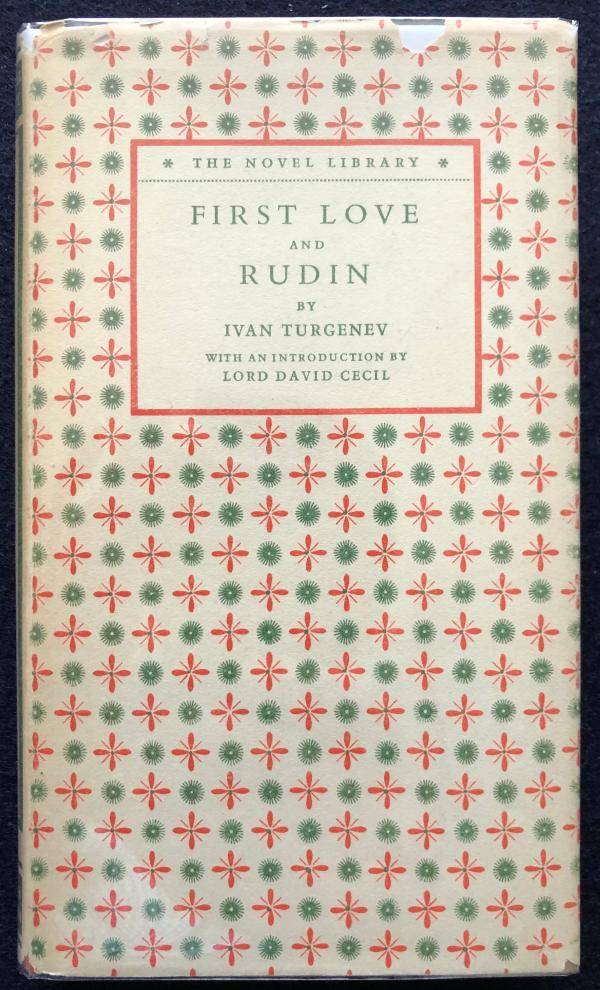
The first edition of Berlin’s English translation of “First Love”
Berlin’s English translation of “First Love” (First Love), published in 1950 by Hamish Hamilton (Hamish Hamilton), London, combined with the English translation of “Rudin” (Rudin) by another (Alec Brown) , Preface by Lord David Cecil.
Berlin’s dedication is printed on the back of the title page of “First Love”. It consists of one sentence and two lines:
This translation is dedicated to
P. de B.

Message from the translator on the first edition of “First Love”
“I would like to dedicate this translation to P. de B.”, a seemingly calm sentence, but it not only contains “signs of love”, “it also carries sadness and bitterness.”
two
Anyone who knows Berlin knows who this P. de B. is.
Patricia de Bendern, Mrs. Patricia de Bendern. His maiden name was Douglas, the daughter of the 11th Marquess of Queensberry. Oscar Wilde’s lover Alfred Douglas (Alfred Douglas) is her uncle.
Patricia’s grandfather, the IX Marquis of Queensbury, Alfred’s brother, was a speculator, failed to speculate and went bankrupt, and died in Johannesburg, South Africa in 1920.
His father, Francis, was handsome and loved literature. He was a friend of Churchill. During World War II, he encouraged Uncle Alfred to write a sonnet dedicated to Churchill. Churchill wrote back to express his gratitude. Francis has always taken care of his charming poet uncle.
Patricia was born on Christmas Eve in 1918. His mother was a famous musical comedian. Her parents divorced when she was six, and she lives with her grandmother. Before entering the social dance party, she was as naughty as a boy. But after watching Patricia dance at a summer party, the photographer Cecil Beaton wrote in her diary: “Wearing a thin pleated white chiffon dress, a straight-haired boy Flower head. It looks pale and delicate. I am really worried that she will disappear at any time. I follow her to the balcony to see if she is a product of moonlight.”
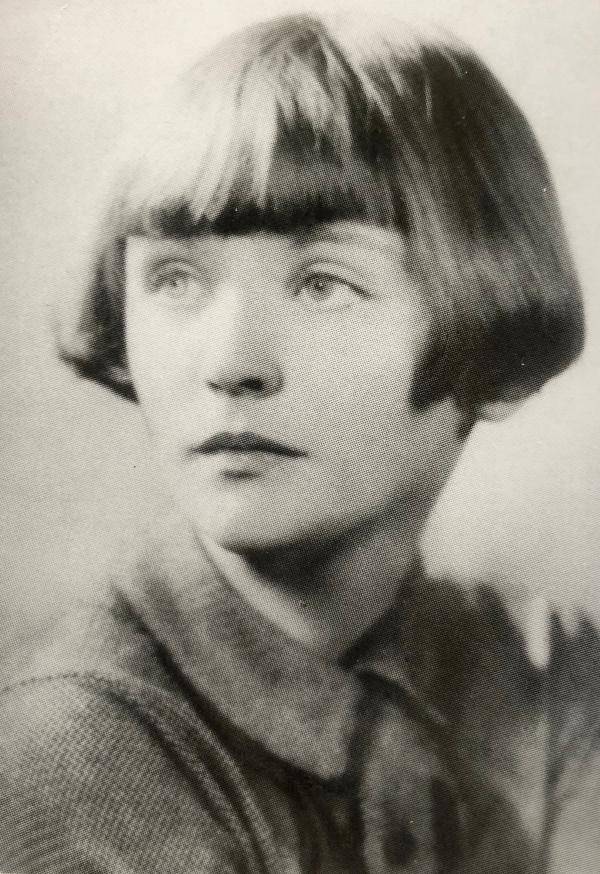
Patricia
In 1938, Patricia was twenty years old and married Count John de Bendern, who was ten years older than her, an amateur golf champion. Although he lived happily after marriage, Earl Bendern was captured on the battlefield in North Africa two years later, and Patricia came to the United States with his daughter.Listen to Professor FO Mattison’s lecture on Henry James at Harvard University’s Radcliff College, take a cello class, and entertain Harvard professors in your apartment (The above is mainly based on the British “Sunday Telegraph” on January 27, 1991[Sunday Telegraph]Commemorative article written by Alastair Forbes in the obituary edition).
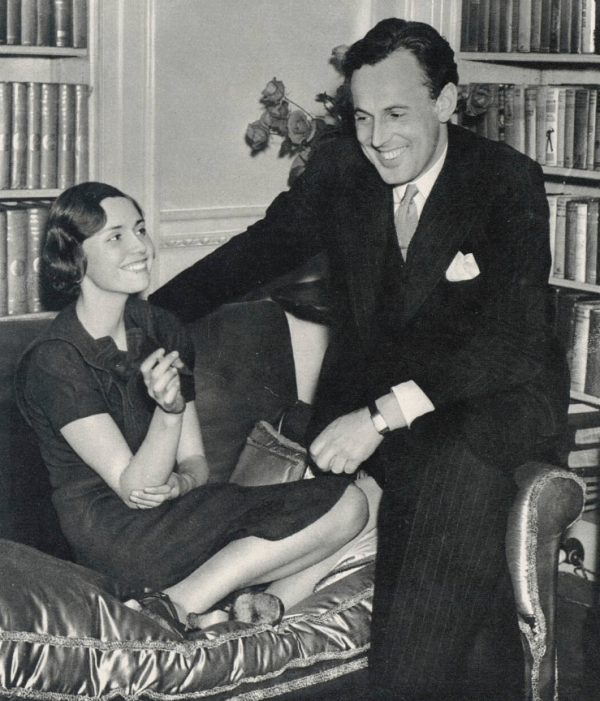
Patricia and her husband Count de Bendern
After the outbreak of World War II, Isaiah Berlin “successfully conducted several news investigations for the British Intelligence Service”. In the spring of 1942, “the British Foreign Office asked him to go to the British Embassy in Washington to do the same for them.” ([加拿大]Michael Ignatieff: “Biography of Berlin”, translated by Luo Yanli, Yilin Publishing House, September 2001, first edition, page 144). In the winter of this year, 33-year-old Isaiah Berlin met 24-year-old Countess Patricia de Bendern.
three
At a luncheon in Washington, Isaiah Berlin happened to be sitting next to Mrs. Patricia de Bendern. Isaiah finds her “very charming”:
Dark blue eyes, soft brown hair combed into a curly shoulder-length hairstyle, complementing her beautiful face, slender and slender, exuding an alluring femininity. Like most ladies in the upper class at the time, she had no decent education, but she was very witty and admired smart men. Obviously, she didn’t love her good-tempered and insignificant husband. When Isaiah asked her why she married him, she replied, “Oh, because everyone else is so terrible.”(“Biography of Berlin”, page 147)
Patricia likes to be coquettish, and Isaiah is intoxicated. Before the luncheon is over, Isaiah is conquered by her. That weekend, Patricia invited Isaiah to her apartment, but “nothing happened to the body.” Soon, Isaiah fell in love for the first time in his life, and he spent almost every weekend with her at Patricia’s house. When Isaiah is not around, Patricia will definitely write him a gentle text message and summon him.Then, she herself was extremely unreliable, and she canceled her appointments at will, sometimes she didn’t see her for a few months. (Ibid., page 148).
Patricia is not only surrounded by a group of smart Harvard scholars who are dedicated to her, but also has constant scandals and is notorious. In the summer of 1943, she became fascinated by a beautiful and wealthy young man who was a graduate student at Harvard, named Jacques Abule, of both French and Cuban descent. Obviously, the stunner Patricia likes to flirt with a smart head and have sex with a pretty face, Berlin is just the former. One thing is said in “The Biography of Berlin”. In December of this year, Patricia, Abel and Isaiah went to New York to watch the musical “Oklahoma!” “, staying in the same hotel that night, Isaiah’s room was next to Patricia and Abule’s, and the sound of sex in the next room continued to pass into his ears through the wall, making him awake all night.At the checkout the next morning, he secretly left the key to the room and never discarded it in his life. (Pages 148-149).
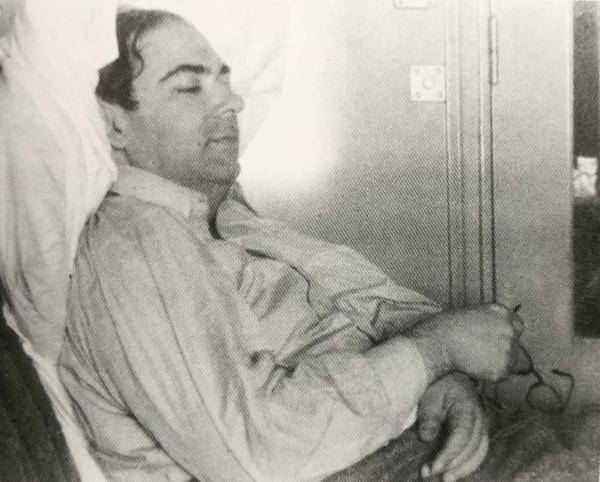
Berlin (1943)
But in Isaiah’s letter to the American dramatist SN Behrman on December 16, 1943, he stated: “I lined up docilely, and when it was my turn, two tickets hurriedly Tucked into the palm of my hand, it showed that my partner did not come. After that, a series of more complicated misfortunes fell on me, including a lot of long-distance calls, explanations, tears, etc.” Isaiah added a note here: “(Although this part of the narrative is not true, it can also be called a non-artistic exaggeration. I am not very interested in the truth, and I plan to omit it.)” The Berliner’s collator added a footnote and said: “Almost. It must be Patricia de Bendern. This may be something after watching the performance of “Oklahoma!” Berlin was sleepless in his hotel, suffering from the next door Patricia. De Bendern and her French-Cuban lover Jacques Abule’s vocal torture.” At the end of the letter, Isaiah said: “Oh my God, but this is really the most painful and painful The most enjoyable day, for many reasons, I will never forget.” (“Isaiah Berlin’s Letters Volume 1 Flying Years: 1928—1946”, translated by Chen Xiaowei and Ye Changying, Yilin Publishing House, August 2012, first edition, pages 557-558)
But this did not make Isaiah’s obsession with Patricia diminish, but only increased the pain. In mid 1944, Patricia’s husband escaped from an Italian prisoner-of-war camp, fled to Switzerland, and sent a telegram to his wife asking her to meet in England. After Patricia returned to England, he continued to write to Isaiah, “These letters cleverly kept Berlin in a state of alive and unconscious obsession, making him hopeless for the year to come. Look forward to” (“Biography of Berlin”, page 149).
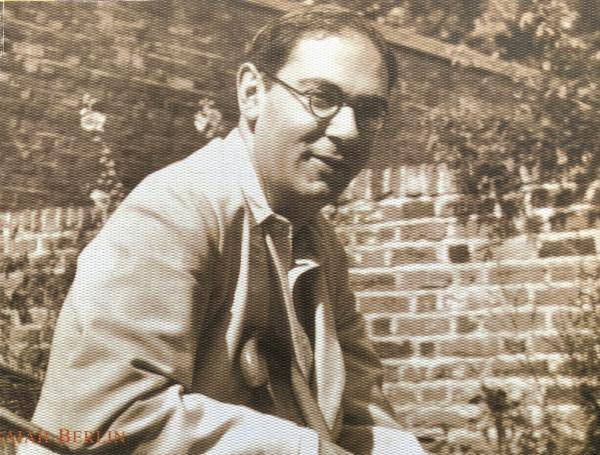
Berlin in Love
After World War II the following year, Isaiah returned to England. At this time Patricia was separating from her husband. One weekend in late July, Isaiah went to her country house to spend the weekend together. After dancing a fast step on the grass, “She asked for peace with her charming and frankly Isaiah got married and this time he found that he could finally say’no’. After being free from the emotional entanglement with her, he boarded a plane to Berlin.” The “Biography of Berlin” added a footnote here saying that it was “based on an interview with Berlin”, but from the perspective of the relationship between the two in the future, Isaiah did not seem to be liberated.
four
Subsequently, Isaiah Berlin went to Moscow and returned to Oxford in April of the following year. The relationship with Patricia is briefly described in “Biography of Berlin”:
For four years after the war, she continued to maintain the kind of delicate relationship with him that made him hate and love to the utmost. When he was in Moscow, she wrote a few letters expressing lovesickness to him, and at the same time coquettishly accused him of wrapping himself up with Russian mystery; when he returned to China, she found that she was stuck in a certain time. Among the new romances. …But whenever the two of them are together, she will soon go to a sexier man. This situation became unbearable for him, and he found that he could remain calm only if he stopped seeing her.(Page 282)
I don’t know if Patricia’s letter to Isaiah is left, and none of the “Biography of Berlin” is quoted. But Patricia was also mentioned in Isaiah’s letters to others during this period. These letters are collected in “Isaiah Berlin’s Letters, Volume 2, Years of Enlightenment: 1946—1960” (Translated by Chen Xiaowei, Ye Changying, etc., Yilin Publishing House, first edition in April 2019)in.
In a letter to his parents on August 13, 1946, Isaiah said: “I had a great time in Paris… The next day I had lunch with a few Americans, including Mrs. De Bendern. My relationship with her has ended. At present, we are living in peace, openly magnanimous, and peaceful. Nothing seems to have happened. After the wound has healed, there is no pain at all. It is amazing.” (Page 17)Of course this was to comfort his parents, who did not approve of his fascination with Patricia. The author of the letter added a footnote to this page, stating that the De Benderen and his wife were in Paris at the time, and the earl was the personal secretary of Duff Cooper, the British ambassador to France, and Isaiah was just passing through Paris. And Patricia was fascinated by Berlin’s Oxford colleague and philosopher AJ Ayer.
In Ayer’s 1977 autobiography, Part of My Life, it was mentioned that in Paris in 1946, “had a sudden and fanatical passion for a British girl who had a relationship in Oxford before. She is married, has one child, and is pregnant with another, but she promised me that when she gets divorced, she will leave her husband and be with me” (Quoted from a commemorative article by Forbes on the Sunday Telegraph). This girl is of course Patricia, but this plan has not been realized. For what reason Ayer might not say it herself. The footnote mentioned in the letter from Berlin revealed: “Ayer was also in the same position at the beginning of the year. Patricia was dating her close friend Penelope Filkin. This secret was used when the two women talked. Ayer blamed Berlin for betraying him. Berlin denied his responsibility, and because of Pat Lisia’s relationship with Ayer ended and she was secretly happy: “I am innocent, but I am not angry because of it, because I still love her.”” This is an interview with Ignatiyev in Berlin’s later years. It was said at the time, but Yi did not write it into the “Biography of Berlin.”
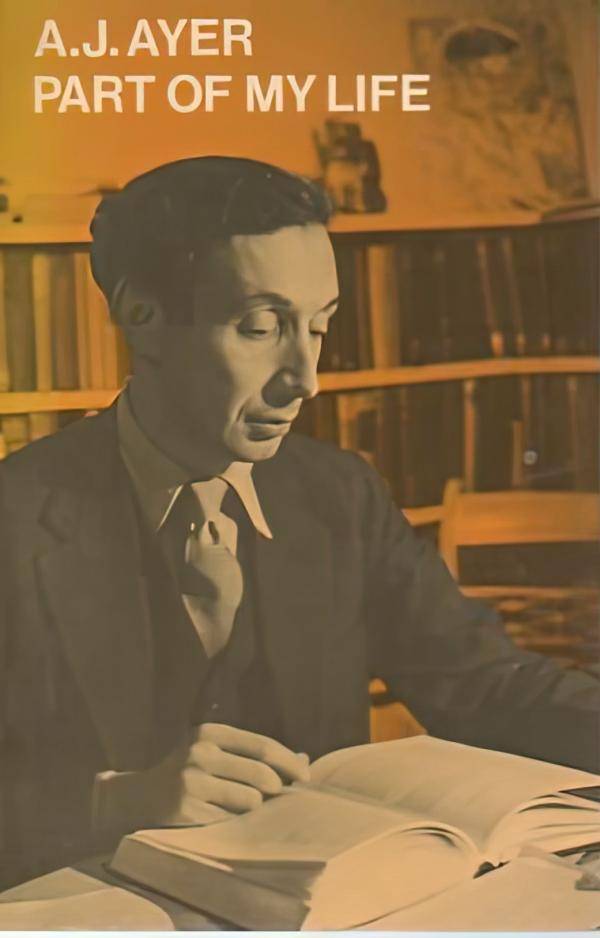
Ayer’s Autobiography “Parts of Life”
In October 1947, Patricia sent a postcard to persuade him to think twice when talking, and finally said: “I really miss you. I hope that one day you can come with us. We drove over. I walked through a few very beautiful small cities. I love Italy—very passionately.” Isaiah replied a long letter on this postcard, and continued to write on a piece of shredded paper. Finish writing. The letter said: “Because I miss you endlessly, and I sighed all day long, disturbing Dr. Paula. Ah, how much deeper is my miss for you than you for me? But you just ignored it and deliberately opposed me… …I am indeed angry and feel betrayed and abandoned. However, my misfortune is because I have not been able to see you, my beloved.” I also said that I was living in a daydream—“I will talk about myself every day. Happiness is incomparable, it only takes a little bit of work, because good things are always overwhelming. I made my friends crazy-but I have not yet achieved my wish, my beloved. (“Isaiah Berlin Letters” Volume 2, pages 70-71)Although I said at the beginning “I don’t want to keep this little stinging thorn” (referring to this postcard sent by Patricia), this letter was still not sent, and another letter might have been sent. And this became the only broken letter written to Patricia in the Berlin Letters.
Fives
Isaiah Berlin visited the Soviet Union for a few months in the second half of 1945, and his interest in Russian thought and Russian literature greatly increased. He especially liked Herzen and Turgenev. When the London publisher Hamish Hamilton learned about it, he suggested that he translate a few Turgenev’s short stories. Isaiah’s letter to Hamilton in mid-May 1946 stated:
I think I am happy to translate Turgenev’s masterpiece “First Love”, and I believe it is indeed worthwhile. You must have heard of this book, about one hundred and fifty pages (I remember it vaguely). This is Turgenev’s most touching, lyrical, and well-known work, as well as an autobiographical novel. I plan to retranslate this book without being affected by any old translations. …Mrs. Garnett has translated it before, but the translation is not good. If you think it is feasible, please write to us and I will start to prepare seriously.(“Isaiah Berlin’s Letters” Volume 2, page 7)
Mrs. Garnett mentioned here refers to Constance Garnett (1861-1946), the mother of the novelist David Garnett, who translated many Russian literary works. Many of the Russian literature translated by early Chinese were Translated from the English translation of Mrs. Garnett, Rulong translated Chekhov, Huang Shang translated Turgenev’s “Hunter Diary”, etc. The translation of Xiao Shan’s “First Love” published by Pingming Publishing House in 1954 is also based on The English translation of Mrs. Garnett was also translated against the Russian text.
Berlin’s letter also mentioned that “David Cecil would be willing to write a foreword for this work, but I haven’t told him yet, but I appreciate it when we talk about it from time to time.” Cecil is Berlin’s A colleague from Oxford and a good friend, Berlin described him in his book “Personal Impressions” as “one of the smartest, most charming, most talented, most delightful, smart, and most talented literary masters of his time.” One” (Yilin Publishing House, October 2013 edition, pages 160-161). Later Cecil did write a preface for the English translation.
In December of this year, Berlin wrote to the publisher that he would finish one before the end of January and the other before the end of April. The fact is that the completion date has been delayed again and again. Originally it was said that the two translations were translated and only one was later translated. As the editor of Berlin’s epistle said: “In academia, this kind of delay is commonplace. But when it comes to the translation of “First Love” “, Berlin became a publisher’s nightmare (and has always been): His translation is indeed of high quality, but it is difficult to get his finished manuscript, because he always delays and delays the publication deadline. Able to give up halfway again and again.” (“Isaiah Berlin’s Letters” Volume 2, page 34)
As of September 1948, Berlin was still explaining to the publisher that he “did his best” and completed the translation, but he had to ask his assistant to help sort it out, and the assistant was busy with other things. (Ibid., pages 94-95). In December of this year, Berlin said that he had intimidated Cecil every day for two weeks, and finally got the preface of “sincere love, beautiful writing”. In his letter to publisher Hamish Hamilton, he stated:
I want to dedicate this book to “P. de B.” (Her identity is obvious to some people, just think about it for yourself).(Ibid., page 118)
However, the publisher replied to him that “there is no funding and no space” to place the dedication. Berlin revealed to his assistant, dedicated to P. de B., “This is my initial motivation for this translation.” (Ibid., page 128). He replied to the publisher a letter with reason and emotion, first stating that “Translators’ inscriptions have always been commonplace, ranging from Lemetheus to Scott Moncliffe (he even wrote a Poem as a dedication), as well as the early Turgenev translation-obviously not referring to Mrs. Garnett…” (The first one mentioned here is the English translator of “Don Quixote”, and the latter is the English translator of “Recalling the Passing Years”), Then wrote:
My heart is desolate, and your iron heart will make me fall into the abyss of despair. You have succeeded in getting me to retract other (no doubt stupid) suggestions, but this last point is both sensible and trivial. Just write some words on the left-hand page-the reverse of the indispensable title page- , Even if there are no blank pages at the front and back of the book, it doesn’t matter.(Ibid., page 130)
It’s hard for publishers to refuse to say so humbly. On June 10, 1949, Berlin wrote to a friend and asked: “This translation is dedicated to Mrs. Patricia Sybil de Bendern. Isn’t that right?” He also said to Pat. Lisia “wrote a postcard, asking her to pay attention to a certain part of “First Love”-if you see her, be sure to remind her.” (Ibid., page 167).
Berlin’s English translation of “First Love” was finally published in May 1950. Sure enough, there was a line of dedication in the position he said.
six
Readers who have read Turgenev’s First Love should easily understand why Berlin chose to translate this novel.
A sixteen-year-old boy (the author himself) wished to fall in love with a neighbor girl who was older than him. Although this girl was surrounded by a circle of young gentlemen, her heart belonged to another. One night, he discovered that the girl the girl loved was actually his father, and his father beat the girl’s arm with a horse whip, and the girl “glanced at her father silently, slowly raised her arm to her lips, and kissed her.” The red welt on the arm” (Xiao Shan’s translation, Volume 2 of Turgenev’s Short and Short Stories, People’s Literature Publishing House, March 1992, p. 183).
Was it because Berlin read this episode of the novel and remembered that he was in a New York hotel listening to the sound of his beloved woman having sex with other men next door and could not sleep all night, or was it the night in the New York hotel that he remembered from “First Love” This scene the boy saw? We cannot guess. But the happy and painful mood of the teenager in the novel is almost exactly Berlin’s own feeling-“As long as these beautiful fingers tap my forehead, I am willing to immediately abandon everything in the world.” (Ibid., page 116). “I said that my enthusiasm began on that day, and I can add one more sentence. My pain also began on that day.” (Page 139)”All the flowers in my mind were picked off at once, and they were thrown by my side, scattered everywhere, and were trampled on.” (Page 117)”I don’t want to have such feelings again in the future; however, if I have never had such feelings in my life, I will feel unlucky.” (180 pages)The young man’s heart is exactly what Berlin has said.
In the seventh chapter of the book, there is such a game. A teenager and five young gentlemen play a “lottery” game with a girl. Each man is given a ticket, and the girl is for the prize. Whoever gets the “lucky” ticket can be Kiss the girl’s hand. On the ticket that the boy got, oh my god, the word “kissing” was written. “The girl’s eyes were bright, she looked at me softly, my heart…” Berlin later recalled that this was the most difficult translation in the entire book. Berlin told his assistant, “My heart Fluttering “is Mr. Nabokov’s suggestion. According to the footnote of the letter organizer, Berlin was obviously dissatisfied with Nabokov’s suggestion, and wrote to his assistant requesting that it be changed to “My heart is instantly helpless”, but in the officially published manuscript, this sentence becomes “My heart almost jumps out” (“Isaiah Berlin Letters” Volume 2, footnotes on page 148).
The translation of this sentence is also mentioned in the “Biography of Berlin” (Page 283)Here, I quote Dong Qiao’s retelling in the article “Whispers”. Berlin asked the female assistant’s opinion when translating this sentence: “A affectionate glance drew the other party’s first look back. It should be said that your heart is turning over. Or is your heart slipped its moorings? My heart leaped within me was used in the final translation.” (“Once Upon A Time”, Oxford University Press, Hong Kong, 2002 edition, 26 pages)
Check out the English translation of “First Love” at hand. The sentence in the first edition of 1950 reads: “my heart slipped its moorings”, and when it was reprinted in 1956, it was changed to “my heart missed a beat” (my heart stopped beating).
I don’t know what words Mrs. Garnett used in her English translation, but Xiao Shan’s Chinese translation directly means “My heart beats.” (“Turgenev’s Short Stories Collection” Volume 2, p. 132).
Seven
Neither the “Biography of Berlin” nor the collection of Berlin’s letters can see Patricia’s reaction after the publication of “First Love”. And Berlin himself, just a month or two after the publication of “First Love”, fell in love with the wife of a good friend, and had his first sexual life at the age of forty-one. A few years later, Berlin’s feelings were transferred to another woman, who was also the wife of a colleague. He wrote to his mother in November 1955 and told his mother: “I am in love happily. This is an extremely amazing emotion. Unlike the long-term entanglement between me and Patricia, our relationship was fanatical and contemptible, and at the same time hysterical…” (“Isaiah Berlin Letters” Volume 2, page 874)This time, the lovers finally got married. The two married in February 1956. Berlin was 46 years old this year, and they have lived a happy second half of their lives.
It was also this year that Hamish Hamilton reprinted the booklet “First Love” and asked the painter Fritz Wegner to provide illustrations.

“First Love” Wegener illustrated: “My heart beats out!”
However, the dedication was gone.
Isaiah finally got rid of Patricia and ended that first love.
Patricia is still romantic, and with the famous fashion gossip journalist Alistair Forbes (Alastair Forbes, who wrote the commemorative article in the “Sunday Telegraph”), Noble sculptor Hermann (“Marno”) Hornak (Hermann’Marno’ Hornak) had a love affair. After divorcing Count de Bendern in 1950, he married the latter in 1952. The marriage lasted until 1960. Patricia died on January 21, 1991, at the age of 72.
After the publication of “First Love”, Patricia gradually faded out of Berlin’s life circle. In June 1957, Berlin was knighted because “Berlin had no honor, which made Mrs. Patricia think that Sir Lin Shoufeng is because of his “extraordinary conversation” (the date of the letter is unknown)” (“Isaiah Berlin Letters” Volume 2, footnotes on page 1008).
In his later years in Berlin, he read the Times every day, and he paid the most attention to the obituary. He once said with emotion: “At my age, everything I do seems to be attending a funeral.” Once he read the obituary that he loved. The woman who has been passing by, his eyes linger on her photo, and said: “She is extremely hypocritical, extremely hypocritical, but extremely cute.” The “Biography of Berlin” added a footnote to explain: “He refers to Patricia. De Bendern.” (“Biography of Berlin”, p. 3)When Berlin accepted Michael Ignatieff’s interview, he said more, but the “Biography of Berlin” was very kind and only quoted part of it. The second volume of “Berlin Letters” is attached with “The Life of Important People”. In introducing Patricia, I quoted more recordings of interviews with Ignatieff:
She is bohemian; full of lies, she is the number one liar in Tianzi. Nothing is true, I mean she can make up anytime, anywhere. … She talks witty… She speaks her point of view straightforwardly, without any taboo. She is critical and maverick. By no means a social girl in the general sense. … She is passionate, from the heart. I love reading, have fun in it, and have great savvy; at the same time, I have a keen heart for painting and music. She admired Bach’s unaccompanied cello sonata most, and she commented very well. In other words, this woman is extraordinary.(“Isaiah Berlin’s Letters” Volume 2, page 1349)
This can be said to be Isaiah’s conclusion on Patricia. Such a woman deserves Berlin to dedicate “First Love” to her.
(This article is from The Paper. For more original information, please download the “The Paper” APP)





























































You must log in to post a comment.